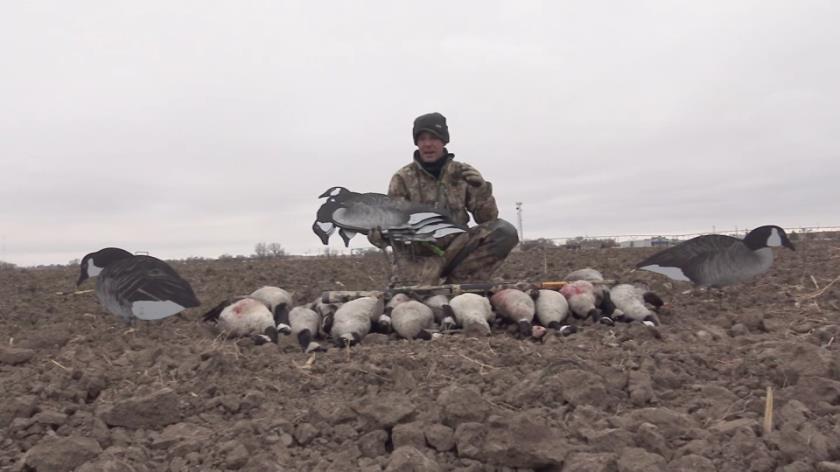
When retailers across the northeast region of the United States first began closing stores to protect residents against the global pandemic, the leaders of The Vermont Country Store moved quickly to put three marketing initiatives in place. The goal was to protect the health of employees and customers and the health of the business itself, according to Jim Hall, president and CEO.
Operating since 1946, The Vermont Country Store, which bills itself as “The Purveyors of the Practical and Hard-to-Find,” carries a huge variety of old-fashioned products sold through two brick-and-mortar stores, a popular catalog, and a new e-commerce website.
“Shopping at Vermont Country Store is fun. It’s entertaining. And it takes you back in time,” said Hall. The company’s retail locations in the Vermont cities of Weston and Rockingham look like the old-fashioned general stores of the 1800s, where town residents rode in on horseback to pick up sundries and sweet treats and visit with neighbors.
Founders Ellen and Vrest Orton modeled their business after the general store run by Vrest’s father in North Calais, Vt. At this store, men in the town gathered each evening to wait for a horse-drawn stagecoach to bring the mail from Montpelier, 13 miles away. The store “smelled of leather harnesses, coffee, smoky kerosene lamps, tobacco and sugar maple logs burning in the potbelly stove,” according to Orton family lore. Ellen and Vrest restored an existing rural general store in Weston, and The Vermont County Store was born. They later developed the first store catalog and mailed it to friends on their Christmas card list.
Today, the founders’ son Lyman Orton — and his sons Eliot, Gardner and Cabot — run The Vermont Country Store. The company sells various home goods, comfy country clothing, imported perfumes and soaps, hard candies, and fine chocolates.
1. Putting people over profits
In response to the pandemic, company leaders quickly closed the two stores, buying time to understand all they could about the cause of the virus, the methods of transmission and best practices for protection. That knowledge inspired them to split the workforce into two shifts that never overlapped to control the spread of any possible infections. They sent the store and call center employees home to work remotely.
Meanwhile, the company put in place strict mask and social distancing guidelines for the employees who run the distribution center, who continued to fulfill orders coming in through the catalog and ecommerce website. “People were buying cheese in massive quantities,” Hall says. “We sold hundreds of hams and cans of soup by the truckload.”
Then came what is usually the store’s busiest time of year, the November and December holiday rush.
Managers took the unusual step of capping the number of catalog and online orders. By limiting orders, they reasoned, they could meet customer service expectations with a smaller number of employees in the distribution center. Instead of adding the typical 550 seasonal workers for the holiday rush, The Vermont Country Story hired half that many, a reduction necessary to allow employees to follow social distancing guidelines.
“I belong to a CEO discussion group, and every one of the members thought I was crazy that we were walking away from business,” Hall says. “But every one of them had significant outbreaks at their companies. Our battle plan was to hire a smaller number of people and keep more of them ongoing into 2021.”
Sales were flat throughout the holiday season compared with the previous year, but the company avoided a COVID-19 outbreak altogether. “I think our team at The Vermont Country Store appreciated the fact that we placed people above profits. We still had an extraordinarily good year in 2020,” Hall says.
2. Continuing a strong connection with customers: An “immeasurable” gift
The Vermont Country Store enjoys a reputation for legendary customer service, brought to life by the agents who run the call center connected to catalog orders. During the pandemic, the retailer allowed call center agents like Charla Helton to work from home and empowered them to go beyond answering routine product questions and do everything possible to help customers suffering from pandemic-related stress.
In just one example, Helton took a call from a concerned customer named Diana, who was spending the holidays apart from loved ones, sheltering from the pandemic in an isolated cabin in the Colorado mountains. Diana had ordered cozy warm socks as a holiday present for her elderly brother, also sheltering in the woods, and then grew concerned when the package did not arrive when she expected. She called the contact center and spoke to agent Helton, who tracked down the distribution bottleneck and got the package moving again. It arrived at its remote destination in time for Christmas.
Diana later wrote a note thanking Helton for her kindness, recalling that the customer service agent had “asked me how I was and meant it. She tracked my order then talked to me. Really talked. This bit of grace was given to me on a day when being isolated in a small cabin in the Colorado mountains, away from family in order to survive until my turn for a vaccine comes, was a gift. Immeasurable.”
Customers regularly write to Vermont Country Store, thanking them for the personal service the contact center employees provide, even from their living rooms.
3. Adopting modern marketing technology
When the pandemic hit, The Vermont Country Store had already started modernizing its e-commerce website, choosing Oracle Commerce. The retailer selected the cloud-based platform to provide customers a personalized shopping experience, based on data reflecting their history with the company, and to respond quickly to the ebbs and flows of business.
The new website is “built to browse,” Hall said, encouraging shoppers to look at their leisure at the vast number of offerings, moving from department to department in a manner that mimics store layout. The website is so inviting, Hall says, it offers soul-weary shoppers a welcome respite from modern-day worries, encouraging them instead to savor the possibilities of an astonishing variety of feel-good, old-fashioned products.
The retailer wanted a website that would allow call center agents to connect order information to customer records instantly so that agents could continue to offer the company’s legendary customer service. Its new website also needed to handle extreme seasonal variations in business volume, a valuable feature as online business exploded during the pandemic. The Vermont Country Store was also keen on an e-commerce solution that would continuously update with fixes and improvements to ensure the most modern site experience.
In addition to Oracle Commerce, the company also adopted Oracle Responsys Campaign Management to help the store send targeted messages to customers based on their personal interests and buying behaviors. That tool later proved essential during the pandemic, when the company needed to steer customers toward products with greater inventory levels.
Looking forward, The Vermont Country Store is implementing Oracle Infinity, a digital analytics platform, to better understand how to measure and influence customer behavior in real time.
“We’re very pleased,” Hall said. “Now we’re only limited by our own imagination and creativity.”






More Stories
Celebrity Fashion Trends That Ruled 2025
Best Dressed at the Oscars 2025
Top Streetwear Fashion Trends Dominating 2025